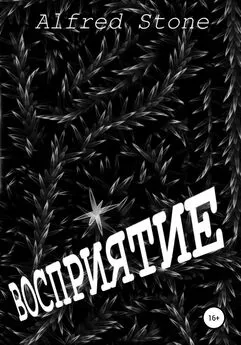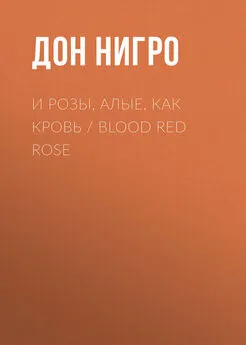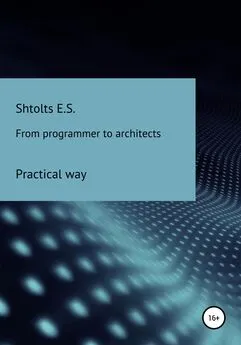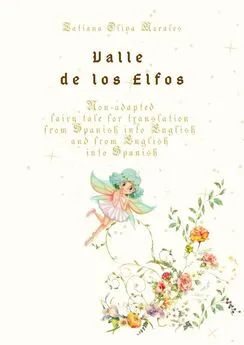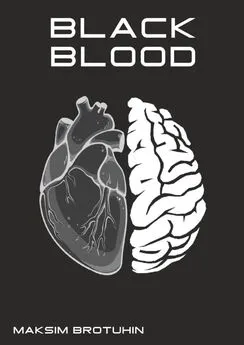Donna Leon - Blood from a stone
- Название:Blood from a stone
- Автор:
- Жанр:
- Издательство:неизвестно
- Год:2005
- ISBN:нет данных
- Рейтинг:
- Избранное:Добавить в избранное
-
Отзывы:
-
Ваша оценка:
Donna Leon - Blood from a stone краткое содержание
Blood from a stone - читать онлайн бесплатно полную версию (весь текст целиком)
Интервал:
Закладка:
The photos, however, had reminded him that Professor Winter had never got back to him. The telefonino he thought of as belonging to Signor Rossi had spent the holiday on the top of his dresser, despised and rejected of men, but as he dressed that morning for his return to the Questura, Brunetti had slipped it into his pocket.
When he took it out, he saw that its battery was running low but that the memory still stored her number. He started to key it in but then changed his mind and wrote it down on a piece of paper. He put the phone back in his pocket and left the Questura, heading up towards the public phones on the Riva degli Schiavoni.
‘Ah, Commissario,’ Professor Winter said, when he identified himself, ‘I hope you had a happy Christmas.’
‘Yes, I did. Thank you. And you?’
‘Very. I was in Mali, you see. Didn’t you get my message?’
‘Message?’ he asked, sounding stupid.
‘Yes. I called to tell you I would be away, and your assistant said he’d tell you I called.’
Brunetti loosened his hold on the receiver, saw that the money on his phone card was fast disappearing, and said, struggling to sound calm, ‘He must have forgotten to tell me, or he wrote it down and it’s got lost in all the mail that’s come in. Could you tell me again what you told him?’ He tried a quiet little laugh and found it sounded quite convincing, so he asked, ‘Did you tell him what it was about?’
‘No, only that I’d be away.’
‘Ah, but now you’re back,’ he said, forcing pleasure into his voice but fearing he managed only to sound foolish. ‘And the photos? Did they get to you?’
‘Yes. But I’m afraid they came at Italian speed,’ she said with a little — slightly superior — laugh. ‘So I didn’t see them until I got back. In fact,’ she said, ‘when I didn’t hear from you, I assumed you’d simply found it out yourself. It would be in any book about African art, of course.’
‘No, nothing like that, Professor,’ Brunetti said, forcing bonhomie into his voice and suppressing his growing anger. ‘Just bureaucratic delay,’ he said, trying, and failing, to fake the easy laugh he thought might be appropriate here. ‘Could you tell me about the design, then?’
‘Of course. One moment while I get it,’ she said. ‘I had one of my assistants put it on my computer.’ As he waited, he watched the centesimi running out until he had little more than one Euro left.
‘Ah, here it is,’ she said. ‘Yes, that’s what I thought I remembered. The photo you sent is of the top part of what is called a diviner’s or healer’s power stick.’ She paused, then asked, ‘You said the head was about five centimetres high, didn’t you?’
‘Yes.’
‘Then my guess is that the stick was about a metre long, but I’ve no idea how the head could have been broken off,’ she said.
If that was meant to be a question, Brunetti had no answer, so he said, ‘I don’t know, either.’
‘I suppose it doesn’t matter,’ she said, and Brunetti noticed that he had seventy centesimi left on his phone card.
‘The sign on the forehead is called a calige ,’ she went on, ‘the sign of life. The other figures on the staff would be animals or other figures that represent the attributes of the magician.’ She stopped, as if waiting for Brunetti to speak. When he remained silent, she added, ‘It’s the same sign that’s used in the scar. Is that what you wanted to know?’
‘Certainly, Professor, it’s all very interesting, but could you tell me where this sign is from?’
‘Oh, didn’t I tell you? It’s Chokwe. No question about it. They’re among the finest wood carvers in. .’ she began, but Brunetti cut her off.
‘Where are they from, geographically, Professor?’
If she seemed surprised by his abruptness, she gave no sign and answered, ‘Along the Zambezi River.’
Brunetti took a long breath and whispered his mother’s favourite prayer for patience in times of adversity, then said, ‘And where would that be politically, if I might put it that way?’
‘Ah, sorry,’ she said. ‘I’m afraid I didn’t understand your question. Angola. Or parts of western Congo. Maybe even Zambia, but it’s not likely that the sub-tribes there would produce an object like that or use that sort of scarring. No, I’d say Angola.’
‘I see,’ Brunetti said, watching the sum on the phone reach ten centesimi . ‘Thank you for your help, Professor; you’ve been very generous with your knowledge.’
‘That’s what it’s for, Commissario. Will it help you, what I told you?’
The units ran out. Seeing the double zero on the phone counter, Brunetti knew he had only a few seconds to answer. ‘I certainly hope so, Professor Winter,’ he began, but then the line clicked and went dead. Into the dull hiss of a lost connection, Brunetti added, ‘But I doubt it.’
He took the used phone card from the phone and turned back towards the Questura. Was Angola where bands of children went on drug-induced killing sprees? He stopped, looked across the bacino to the cupola of San Giorgio, then to the sweep of cupolas running up the riva of the Giudecca. There crazed children hack and chop and maim, and here the ferry boat passes in the direction of the Lido just on time.
Brunetti put out a hand and braced it against the wall of the calle , waiting for this strange dislocation to pass. He had read that people who thought they were going to faint should lower their heads below their knees, but he could hardly do that here. He did, however, close his eyes and lower his head.
‘You all right, Signore?’ he heard a man’s voice ask in Veneziano.
He opened his eyes and saw a short, roly-poly man in a dark jacket, wearing a green plaid tam on what appeared to be a bald head.
‘Yes. Fine. Thank you. Too much Christmas, I think,’ Brunetti said and tried to smile. ‘Or maybe it’s these changes of temperature.’
The man smiled, relieved to hear Brunetti was all right. ‘That’s probably it,’ he said, ‘too much Christmas.’ Then, cheerfully, ‘Time for us all to get back to work, isn’t it?’
‘Yes,’ Brunetti said, ‘I think it is.’
As he continued towards the Questura, he considered how he could get back to work. The files were gone, the case had been ‘removed’, not only from him, but from the Venice police force as a whole. Brunetti had no idea who the victim was or why he had been in Venice, nor had he any idea of why the man was so important that the Ministry of the Interior and the Foreign Ministry should busy themselves investigating his death or suppressing any investigation of his death. Brunetti had to confront the fact that he had no clues and no evidence. No, that was not entirely true: he still had the diamonds, or Claudio’s bank did, and he still had the man’s body — or assumed he did.
At that thought, he turned back towards the embankment and returned to the public phone. All he had were some Euro coins, and he put one into the phone, then dialled Rizzardi’s number from memory.
When the doctor answered, Brunetti said, without introduction, ‘That person we were talking about before Christmas, is he still there?’
There was a long pause, during which Brunetti could imagine Rizzardi recognizing his voice and then deciphering the question. Finally the pathologist asked, ‘You mean that man from the Christmas fair?’
‘Yes.’
‘No, he’s not,’ Rizzardi said. ‘I thought you knew.’
‘No. Nothing. Tell me.’
Rizzardi’s voice tightened, as if he found this speaking in code to be a game more fit for adolescents than for grown men. But he continued, nevertheless. ‘Some people — I thought you must know about it because they work for the same company you do — they came to get him and decided they’d give him a great send-off.’ Rizzardi paused, perhaps waiting to see if Brunetti was following. When Brunetti asked no questions, the pathologist added, ‘Just like your friend Hector.’
Now the doctor was being too clever by half. Whatever code Rizzardi was trying to use, Brunetti was completely lost. ‘Ah, Hector. Which one was that, which Hector, I mean?’
‘The one in that book you’re always reading, the one about the war.’
That could only be the Iliad , which ends with the death of Hector. And his funeral pyre.
‘Ah, I see. Well, thanks, Lorenzo. I’m sorry I missed him.’
‘I imagine you are,’ Rizzardi said and hung up.
Something close to panic gripped at Brunetti’s throat. He could not have answered if someone had asked him a question. He had lost his coin when Rizzardi hung up; he dug out another one and found he had trouble putting it in the phone. Brunetti had never had much faith in the divine; if he had, he probably would have tried to make some sort of deal: Claudio’s safety for just about anything: the diamonds, the entire case of the African and his death, Brunetti’s job.
He dialled Claudio’s number. It rang four, five, six times, and then a woman answered.
‘ Ciao , Elsa. It’s Guido. How are you?’
‘Ah, Guido, how good to hear your voice. I wanted to call Paola over the holidays, but I was always so busy here, with the boys and the grandkids; I never found the time. Is she all right? Did you have a nice Christmas?’
‘Yes, the kids, too. And all of you?’
‘No reason to complain. We go on.’ Then her voice changed and she said, ‘I suppose you want to talk to Claudio.’
‘Oh, is he there?’
‘Yes, he’s helping Riccardo’s youngest with a jigsaw puzzle. We have the kids today.’
‘Ah, then don’t bother him, Elsa. Really, I just wanted to know how you and everyone were. Just tell him I called, and give him my love. And to all of you, as well.’
‘I will, Guido. And the same to Paola and the kids. From all of us.’
He thanked her and hung up, folded his arms on the top of the telephone and rested his head on them.
After a few minutes, someone banged roughly on the door to the phone booth. It was one of the vendors from the stalls of tourist junk that lined the riva , a much-tattooed man with long hair, a man known to Brunetti in his professional capacity.
He apparently failed to recognize Brunetti and said, ‘You all right, Signore?’
Brunetti stood up straight and let his arms drop to his sides. ‘Yes,’ he said, pushing open the door. ‘I just had some good news.’
The man gave him a peculiar look and said, ‘Strange way to react to it.’
‘Yes, yes, it is,’ Brunetti said. He thanked the man for his concern, words that the man shrugged off as he turned back to his stall. Brunetti started back to the Questura.
On the way he decided to tell no one. Signorina Elettra’s computer had been wiped clean: let it stay that way. Vianello’s was gone from the Questura: let it stay where it was. The body was gone, but Claudio was safe. If the powers that ruled them wanted to investigate the death on their own, then let them do it. They’d get no more of him. All the way back, he washed his hands of the case, raged at what he referred to as his former, unreformed self for daring to put his friend in jeopardy and for having risked the jobs and, for all he knew, the safety of the two people he loved at the Questura.
Part of his mind had moved on before the other part registered what it had heard. His steps slowed. He shoved his hands into his pockets and looked at his shoes, almost surprised to see that he was wearing shoes that were not soaked. ‘The two people I love at the Questura.’
Читать дальшеИнтервал:
Закладка:
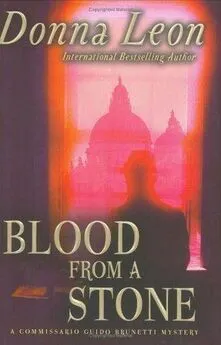
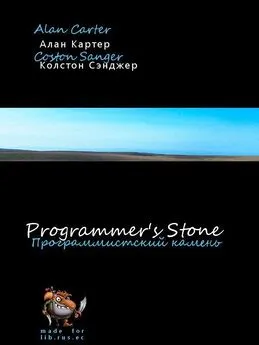
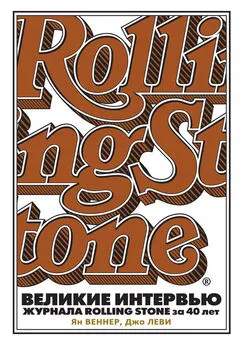
![О Генри - С высоты козел [From the Cabby's Seat]](/books/1083418/o-genri-s-vysoty-kozel-from-the-cabby-s-seat.webp)
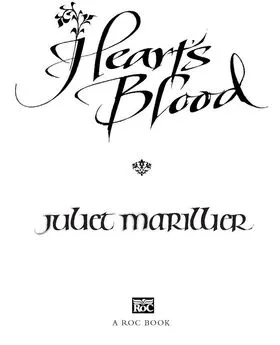
![Инна Владимирова - Blood diamond [litres самиздат]](/books/1149324/inna-vladimirova-blood-diamond-litres-samizdat.webp)
